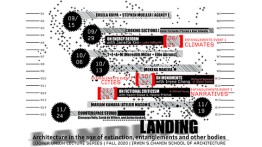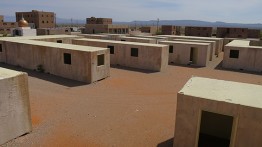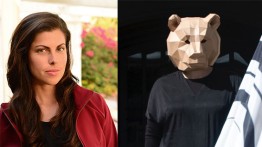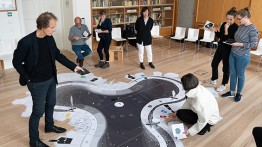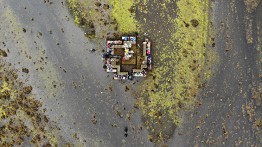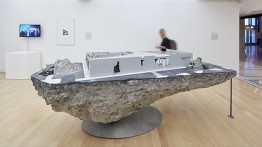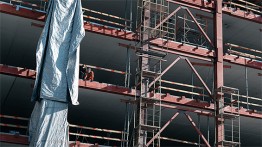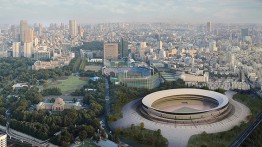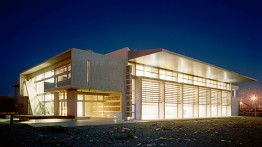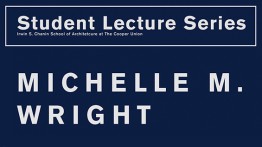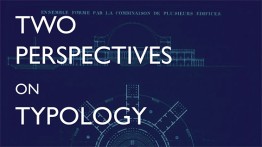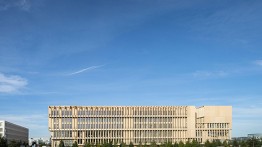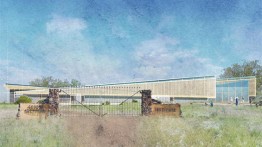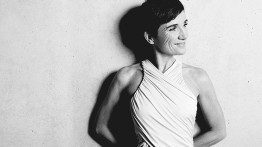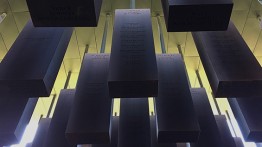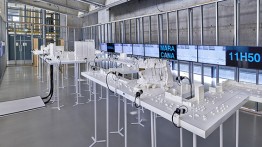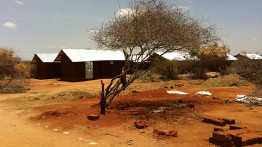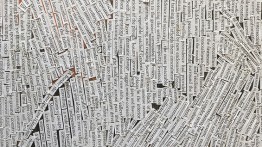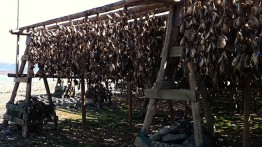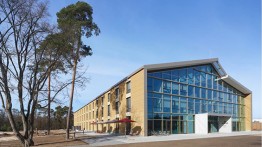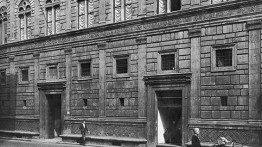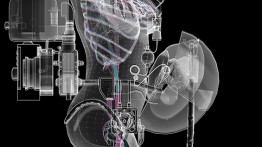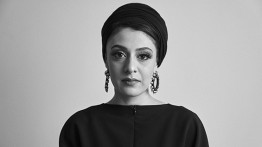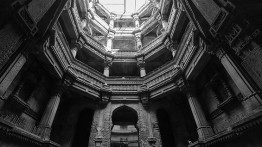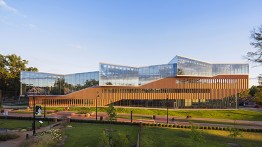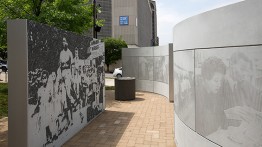Fall 2020 Lecture Series and Exhibitions
|
|
Visiting Lecture Series | Landing; Architecture in the age of extinction, entanglements and other bodies
In 2017, Bruno Latour claimed climate change, social inequality, and economic deregulation to be indivisible and intertwining problems, and envisioned the materialization of these three factors as a landing process down to earth. Perhaps we are amid this landing today. Immersed in our pandemic reality, the world of neoliberal governmentality and ethics seems to be waning. Our state of connected immobility might be a rare opportunity for a united reflection on the fragility of our production processes, our hubris for ceaseless growth and endless mobility, and finally, our accountability for how we occupy our planet.
Although there is little concrete evidence that directly links Covid-19 to the environmental degradation of natural habitats, the privileged logic of unaffectedness that has propped up such acts of ignorant denial is severely damaged. In our world, there is no place of escape. The age of extinction is also a telling blow to the denial of “climate” in a broader sense, as a material condition that impacts all human and non-human beings. In light of this total sense of endangerment, it becomes manifest that in the greater planetary scale, we are the expendable ones; not the Earth. Borders loom as the weakened fantasies of nation-states to withhold sovereignty; a sovereignty that is detached from the water and the air that subjects breathe and drink, and from the materiality of their bodies in how they encounter the physical world.
The Cooper Union 2020-2021 Visiting Lecture series will explore the role of architecture and urbanism within the context of interconnected global crises: the climate emergency, the public health crisis and social inequity. In this context, we will investigate how architecture constructs, distributes, and leverages power, as well as how spaces are shaped by larger political agendas that unequivocally involve questions of race, gender, body politics and biopolitics. The overall aim is to question and assume responsibility for architecture’s political, social, ecological and social agency.
Entanglements Series
The Entanglements Series fosters dialogue and entangles invited visitors to engage in live conversations with Cooper Union faculty on a certain theme, project or topic in which the two parties are entangled. Entanglements will take place as live debates, dialogues and conversations following short presentations by the speakers. This series focuses on the environmental and architectural humanities, as well as posthumanities, entangling matter and meaning.
Student Lecture Series 2020-21
Context
The COVID-19 pandemic has thrown into sharp relief the systemic inadequacies that had otherwise been masked by conventional indicators of societal and national success. The pandemic has accelerated the cycle of late-stage capitalism towards its inevitable breaking point and in doing so, laid bare the inherent fragilities within the structures that constitute what we define as “normal”. The ongoing fight for racial equality in the midst of the pandemic has further highlighted the fractures within both social and urban fabrics, while foregrounding issues of institutional racism, labour inequality, and environmental justice.
With the following thematic statement, the Student Lecture Series Committee seeks to:
- Respond to this critical and highly specific generational moment
- Create a space for open discourse concerning architecture’s role in upholding power structures
- Provoke students to reflect and respond critically
Focus
Architecture is the experiential interface between one’s internal environment -- the space of
consciousness -- and one’s external environment -- the space of physical inhabitation and interaction. An understanding of how strongly our perceived realities are mediated by architecture necessitates critical engagement with the crises that influence our social experiences and practices. Questioning architecture’s complicity with a status quo built on inequity demands foregrounding its constructs in context.
The current moment presents a unique opportunity to redefine the metrics of normativity, as well as a chance to re-assess the priorities of the architectural field. How can the tools of architecture be used to make visible rather than obfuscate, shelter rather than exclude, sustain rather than commodify?
This is not a call to put aside inherently architectural questions of form, space, geometry, and program, but to interrogate the biases, implications, and assumptions embedded within such questions. How can we shift our reading of architecture from a series of autonomous forms to acknowledging that these forms are embedded within systems of exclusion, extraction, land theft, labour exploitation, and commodification? How can we begin to enable agency through our contributions to built and social environments? How can we advance past zero-sum games while learning to question the architectural, pedagogical, and professional premises we assume to be neutral?
The Committee recognises that while the Student Lecture Series has the capacity, as a conversational platform, to begin addressing these issues, institutional change cannot be achieved simply through a set of lectures over the course of an academic year. Rather, it requires the participation and commitment of the School as a whole - an ongoing series of conversations to be perpetuated both within and without studio spaces, town halls, and lecture rooms.
In an effort to sustain conversations around the aforementioned subject matters over the academic year and beyond, the Student Lecture Series Committee invites the students, faculty, and staff of the Irwin S. Chanin School of Architecture to contribute to the following list of provocations:
- What constitutes architectural “canon”? Who does this canon serve, and who does it exclude?
- How can we begin to decenter and/or decolonise architectural canon?
- How can we center, and/or provide a platform for, the conversations and narratives that have thus far been considered extraneous to architectural canon?
- What does architectural solidarity mean?
- In a fractured world, how can a stance or consciousness be shared within the field as a whole (e.g.stances against practices against humanity such as prison design, or against the production of luxury housing, etc.)
- How can the field of architecture shift towards anti-racism? What is the role of architectural institutions in engendering this shift?
- What does an anti-racist architectural institution look like?
- What agency do students, faculty, and staff have in creating change at the institutional scale?
- How can local systems of knowledge be elevated?
- How will the architectural profession, and the industries reliant on the profession, shift in response to climate change? How can these shifts ensure a “just transition” for all fields and practices involved?
- How can the process of thoroughly analyzing or intimately knowing a place (geographically, socially, environmentally, etc.) elevate a piece of architecture?
- How can it elevate the field of architecture?
- How can processes of construction and labour engage local demographics, engage the land, and/or create community?
- What does it mean for an architectural practice to be democratic?
- How can architects design for public health? How can we design for societal health?
*This list will remain open to additions indefinitely. Submitted provocations may be re-organized by the Committee for clarity.
In Conversation Series
The primary purpose of the In Conversation Lecture Series (IC) is to engender discussion of timely issues and ideas among Cooper faculty and students. There is a time and place for the expert monologue, but IC is neither. A few times a semester, IC stages a dialogue between invited faculty members, through a process mediated by the active inquiry of a student audience. This translates to quick faculty presentations followed by a meaty question-and-answer based discussion led by student organizers and the audience.
Current Work
Current Work is a lecture series co-sponsored with The Architectural League of New York featuring leading figures in the worlds of architecture, urbanism, design, and art.

